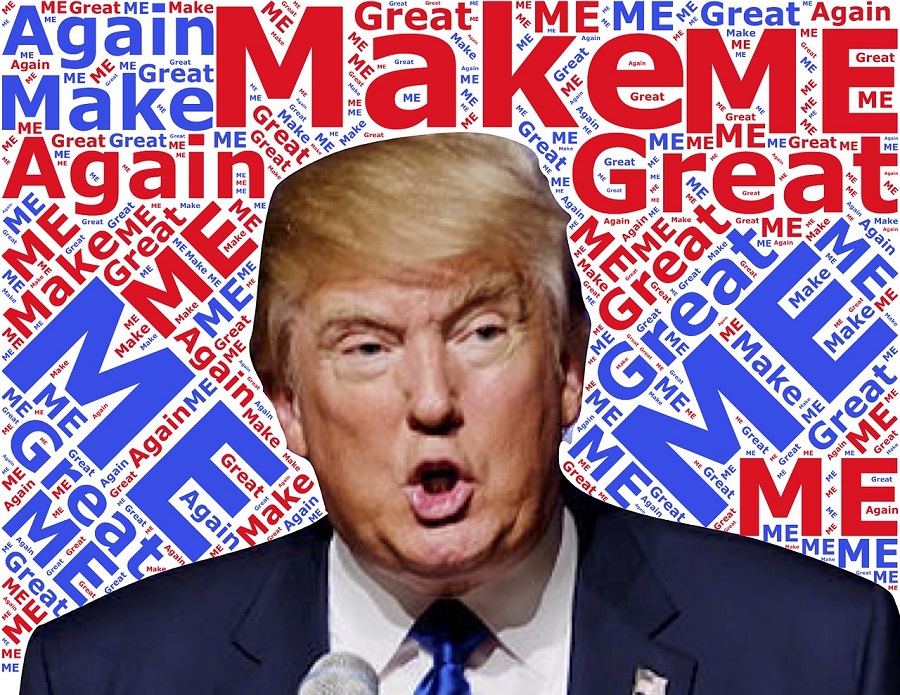“A political earthquake can be a wake-up call”
Interview with Foreign Minister Frank-Walter Steinmeier on the result of the US presidential election.
Published in spiegel.de, 11 November 2016.
Mr Steinmeier, back in August, during the US election campaign, you called Donald Trump a preacher of hate and said you were “really scared” by the prospect of him becoming president. Do you now regret saying that?
I was disconcerted by how the election campaign was being conducted in the US ‑ the things being said and the tone being used. And I was not the only one to feel that way. No one will deny that Donald Trump played a part in the apparently no-holds-barred confrontations. But what matters now is whether President Trump will act exactly the same way as presidential candidate Trump. We simply don’t have enough information ‑ we don’t know what lies in store for us.
Are there actually contacts to Trump’s camp?
Many people have already tried to discern a foreign policy doctrine, or at least clear and coherent positions, from Donald Trump’s statements. They haven’t had much success. A great many questions remain open.
And you haven’t been able to find out anything from other experts?
I spoke several times with Henry Kissinger in New York about what foreign policy we can expect and about Donald Trump’s staff. But even this wise old man and former Republican Secretary of State, to whom every US politician made a pilgrimage in the hope of receiving good advice, didn’t have an answer. Along with him, the entire foreign policy community in Washington is in the dark.
Trump made disconcerting remarks in the past on the use of nuclear bombs and on the United States’ role in NATO. Do you now expect the future US president to clarify these statements?
The new administration urgently needs to get organised quickly and to draw up the positions of the new US Government. Our view of things and our stance will follow on from that. From a large number of talks I had with European neighbours, I am aware how unsettled they are by disparaging statements on NATO and partners in NATO. But even if we receive the clarification we want, we will have to get used to the idea that US foreign policy ‑ at least for a considerable period of time ‑ will be less predictable. We can only hope that things will be better than they seemed during the election campaign once the government takes power. However, the expectations that have been raised among the US population are enormous.
What impact will this have on Germany?
We don’t need to react to the election result in the US with paralysis, like a rabbit caught in the headlights. Instead, we need to look at what is important to us. This includes determining what we want ‑ and what we support in the transatlantic relationship and will advocate as a matter of urgency to our US partners, namely that we stand for political reason and foreign policy reliability. And we stand for a political culture that does not shy away from political arguments, but maintains respect for its political opponents. The more united Europe is on these issues, the more convincing we will be.
Many people in Germany are worried. We also see that in our readers’ letters. Some are afraid of new wars, while others fear new global political instability. What would you say to these people?
I can understand that many people are worried at the moment about what impact the election result will have on the US, the world, and on us in Europe and Germany. Uncertainty gives rise to unease. It is simply a contradiction when the slogan is “make America great again”, but at the same time there are calls to withdraw from the world; when there is criticism of US military deployments, but at the same time there are demands to put a stop quickly to IS in Syria and Iraq.
Could there be more US military deployments?
I am not in a position to predict if the trend will be towards more or fewer military activities by the US or if there will be more or less involvement in the world’s trouble spots in Syria, Yemen, Libya and the Middle East. The sooner we receive answers to the outstanding questions and the sooner we know who will hold foreign policy responsibility in the US administration, the sooner we will be in a position – hopefully ‑ to allay people’s concerns. At the moment, I would have to speculate like you.
Right-wing populists in Europe, including in Germany, are celebrating Trump. With Trump as leader of the most powerful country in the world, is the West entering an era of intolerance?
I can’t warn people often enough about the consequences of policies that feed on people’s fears and offer nothing but simplistic answers to complex questions. Anyone who pretends there are simple answers in a complicated world is lying! I firmly believe that the majority of people in Germany rejects this type of policy of rage, fear and confrontation. But we have to work hard for this every day. And whenever policies are susceptible to fears, then we simply have to do more to make them more stable. A political earthquake like this can be a wake-up call for this.
* * * * *
Zdroj: http://www.auswaertiges-amt.de/EN/Infoservice/Presse/Interview/2016/161111-BM_Spiegel_Online.html
Ilustračné foto: pixabay.com







